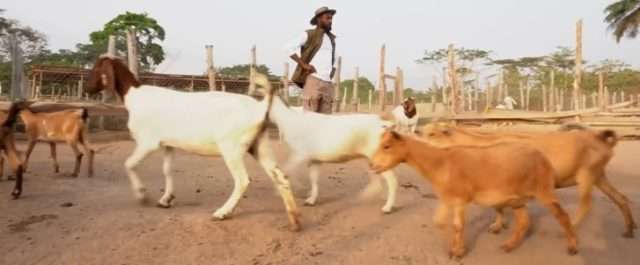Semanhyia Farms and Farming in Africa, a prominent livestock breeding facility in Berekum Senase in the Bono Region, is facing an unexpected setback as the traditional leaders of Berekum have ordered a closure of the GH¢5 million investment, citing a breach of a taboo not to rear goats in the Berekum area.
Semanhyia Farms has been operating in the area for the past five years and in addition to other breeds, it has a large stock of goats as part of its farming project in the area.
The farm owners have been given a two-week ultimatum to relocate all the goats outside of the Berekum area because of the taboo.
Fredrick Benneh Frimpong, the founder and CEO of Semanhyia Farms in a video posted on social media, disclosed that the directive is as a result a historic taboo against rearing live goats in the Berekum area.
Despite locals previously rearing goats in the same area without repercussions, a recent event, including the slaughter of stray goats during the funeral of the late Berekumhene, has prompted the sudden enforcement of the taboo.

Watch the video below
Semanhyia Farms is renowned for the introduction of South African goat breeds and currently boasts of 200 breeds, each valued at US$1500.
Despite Benneh Frimpong’s innovative feeding solutions, including climate-resistant hay and keeping the goats in a fence in the farm, the elders and leaders of Berekum have issued a two-week ultimatum to evacuate all goats from the land.
Benneh Frimpong in various social media videos since the farm started, has been expressing passion about transforming Ghana’s livestock industry and has been expressing his dedication to introducing innovative ideas for livestock breeding and rearing.
The closure, he said, is going to jeopardize not only his investment but also the construction of West Africa’s largest goat pen at Senase, costing GH¢400,000.
He said in 2023 alone, GH¢1 million was invested in the farm, planting of semanhyia grass, drilling of three boreholes to provide water and the introduction of breeds that cost over US$1500.
He added the building of a warehouse and installation of other machines at the farm, which cannot be easily moved away to a new place.







































